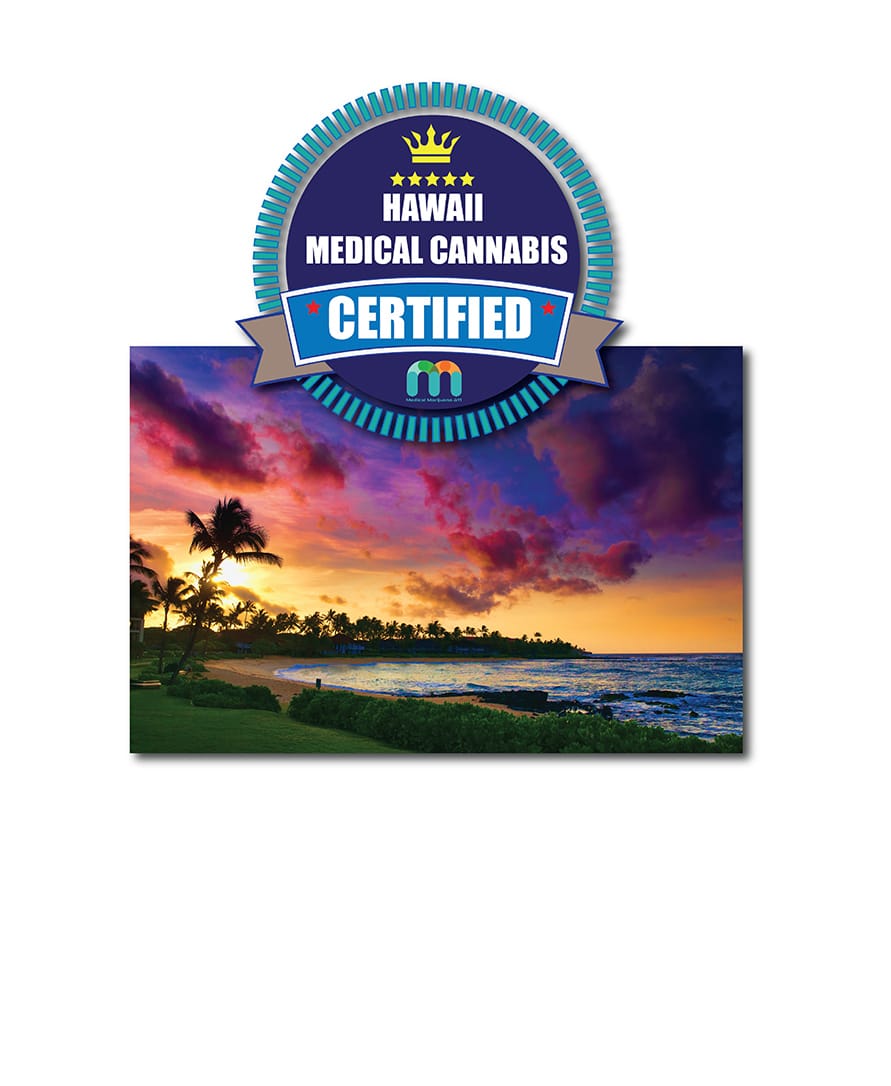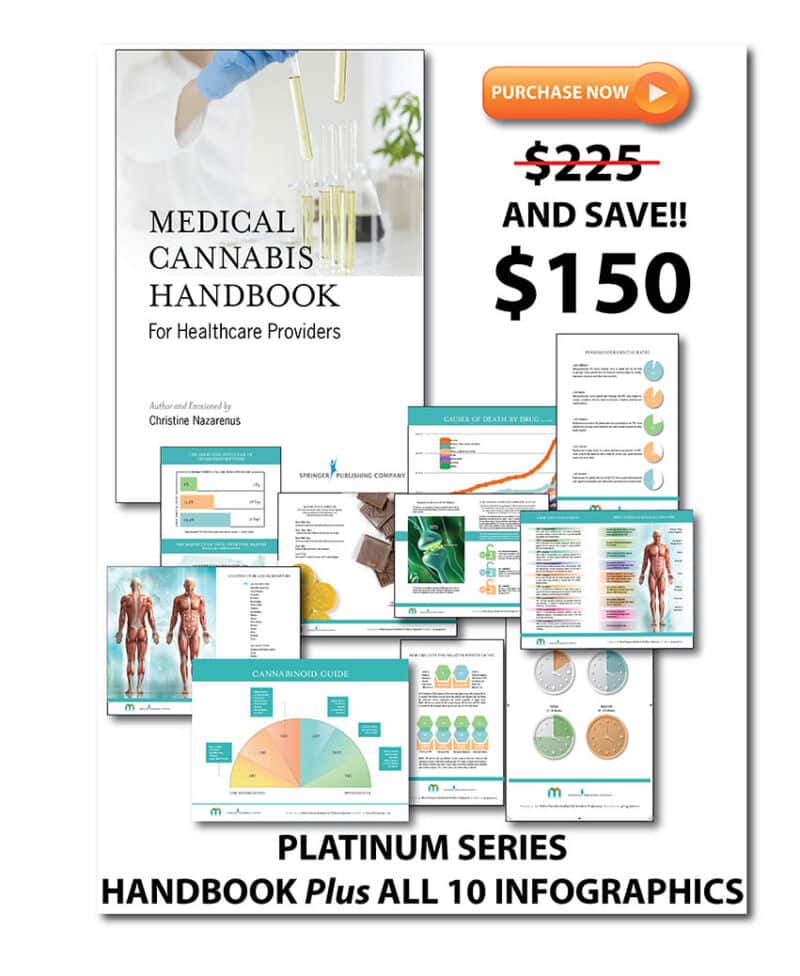Does your state have legal cannabis? Yes! Medical Cannabis is legal in Hawaii. Cannabis in Hawaii is illegal for recreational use, but decriminalized for possession of three grams or less. Medical use was legalized through legislation passed in 2000, making Hawaii the first state to legalize medical use through state legislature rather than through ballot initiative.
Taken directly from the State of Hawaii, Department of Health, Medical Cannabis Program, If you are planning on acquiring medical cannabis from a dispensary, you must have 1) your valid 329 card, and 2) valid state ID, valid state driver’s license, or valid passport on your person to gain entry.
The Hawaii Department of Health is responsible for administering two distinct but related medical cannabis programs.
- Medical Cannabis Patient Registry Program
- Medical Cannabis Dispensary Program
Both are designed to ensure medical cannabis is accessible for Hawaii’s patients, while making patient safety and public safety its ultimate priorities.
Medical Marijuana 411 understands that industry personnel (budtenders) and healthcare professionals strive to be knowledgeable. The MM411, Inc Certifications offer the science behind “why” cannabis can be an option for different ailments.
What does the Certification Include?
The Medical Cannabis Foundational Certification will allow you to learn the core fundamentals of cannabis science and explore cannabis industry knowledge, so you are prepared to be a certified in your state. Our courses and certifications will provide you with knowledge and skillset to enter the cannabis job market competitively, right out of the gate. This certification is not just for medical professionals, but for budtenders who want to enroll in the most robust cannabis certification course as your educational foundation.
As you expand your cannabis educational pursuits, make sure to check out additional courses such as our Advanced CBD Certification. Medical Marijuana 411 will be adding new expert level certifications monthly. Subscribe to our e-news to stay informed!
The Medical Cannabis Foundational Course is an online course that covers a series of 12 modules designed to teach healthcare and industry professionals the fundamental topics of cannabis and includes a specific module on the legal framework, forms and other pertinent information regarding the expanding Hawaii medical cannabis program.
In addition to Hawaii specific regulations, learn about the federal legal framework of working with medical marijuana patients, the basics of the cannabis plant, the Endocannabinoid System, and how cannabinoid receptors work with our bodies. Additional modules will cover important topics like: how to medicate, inhalation versus ingestion, contraindications, drug-on-drug interactions, and recommended rations of specific illnesses. Did you know that Healthcare Professionals are covered by Federal Law to talk to patients about Medical Marijuana even in non-legal states by an existing statute? That’s the wealth of information contained in MM411, Inc. certifications.
This certification also includes: video testimonials from scientists and medical experts, downloadable infographics, additional visuals to support the written content followed by an exam to receive your certificate. Any individual wanting to learn more about the science of cannabis will find the course valuable. And we guarantee your complete satisfaction or your money back. To date, MM411, Inc has never had a return. Enrollees love our certifications and we stand by our courses with a 100% guarantee.
Legal Assessment
Hawaii – Medical Marijuana Legal Overview
Qualifying Conditions
As defined in section 121 of HRS-329 , a qualifying debilitating medical condition includes:
- Amyotrophic Lateral Sclerosis (added effective Dec. 19, 2017 per petition process)
- Cancer
- Glaucoma
- Lupus (added effective June 29, 2017 as per Act 041, SHL 2017)
- Epilepsy (added effective June 29, 2017 as per Act 041, SHL 2017)
- Multiple Sclerosis (added effective June 29, 2017 as per Act 041, SHL 2017)
- Rheumatoid Arthritis (added effective June 29, 2017 as per Act 041, SHL 2017)
- Positive status for human immunodeficiency virus
- Acquired immune deficiency syndrome
- Post-traumatic stress disorder (added effective July 1, 2015 as per Act 241, SLH 2015)
“The treatment of these conditions”, or “A chronic or debilitating disease or medical condition or its treatment that produces one or more of the following:
-
- Cachexia or wasting syndrome
- Severe pain
- Severe nausea
- Seizures, including those characteristic of epilepsy
- Severe and persistent muscle spasms, including those characteristic of multiple sclerosis or Crohn’s disease
Here is our base course that allows you to explore cannabis industry pathways to future certification.
Set yourself apart from the rest!
Course Syllabus
Module 1 – US Legal
- U.S. Controlled Substances Act
- Drug Schedule – Cannabis Schedule I
- Drug Schedule (Graphic)
- COVID Cannabis Guidelines
- Economic Impact
- Cannabis genus of flowering plants in the family Cannabaceae
- Legal differentiation between hemp and marijuana distinguished by their respective concentrations of the cannabinoid delta-9 tetrahydrocannabinol (THC)
- 2018 Farm Bill
- Impact on hemp classification
- SAFE Banking Act
- U.S. Pat. No. 6,630,507
- Trademarks
- Ogden Memo
- Cole Memo
- Wilkenson Memo
- 2018 Sessions Memorandum
- Rohrabacher–Blumenauer Amendment
- Joyce Amendment
- Conant v. Walters
- What Medical Professionals Can Legally Provide To Their Patients (Graphic)
- Cannabis and Cannabis-Derived Compounds: Quality Considerations for Clinical Research
- Guidance for Industry – Downloadable PDf
- Cannabis and Cannabis-Derived Compounds: Quality Considerations for Clinical Research
- Guidance for Industry – Video Explainer
- Taxes
- Affirmative Defense
- Bankruptcy Protection
- Employment Law
- Access to Banking – Financial Crimes Enforcement Network FinCEN Guidance
- Copyright and Registration
Module 2 – Hawaii Cannabis Legal Module
Module 3 – History
- Early History of Cannabis Use
- Cannabis in the West
- U.S. Prohibition History
- The Medical Implications of U.S. Prohibition
- Medical Cannabis Today
- Hemp vs Cannabis
- Brief Chronology of History in Spain and throughout Europe
Module 4 – The Discovery of the Endocannabinoid System
- Introduction of the Endocannabinoid System (ECS)
- Largest Receptor System
- ECS – Video Explainer
- Newly Discovered
- Chemical Bridge to All Bodily Functions
- Homeostasis
- Healthy Body = Healthy ECS
- ECS – Downloadable Graphic
- Dr Jake Felice – What is the Endocannabinoid System (ECS)? Video Interview
- Largest Neurotransmitter System of all “the body’s supercomputer”
- 1964 discovery of THC and CBD – Raphael Mechoulam, Ph.D and Yehiel Gaoni, Ph.D
- The Scientist – video regarding Raphael Mechoulam, Ph.D discoveries
- Allyn Howlett, Ph.D – Isolating THC in the brain – 1998
- No cannabinoid receptors in the cardiac and respiratory centers of the brainstem therefore no overdose from cannabis
- Raphael Mechoulam, Ph.D found in 1992, brain chemical that mirrors the effects of THC
- Two brain chemicals – anandamide, Sanskrit word “ananda” brain chemical that mimics THC and CBD, 2-Arachidonoylglycerol, which they named 2-AG.
- Endogenous Molecules “endocannabinoids”.
- CB1 receptors, and CB2 receptors
- Cannabinoids and how they attach to receptors
- CB1 receptors
- Located in the central nervous system and affect many brain functions including movement, anxiety, stress, fear, pain, appetite, reward, and motor control
- CB2 receptors
- CB2 receptors control the release of cytokines, immuno-regulatory proteins, that are linked to inflammation during illness or after injury.
- Retrograde Inhibition
- Lack of education on the Endocannabinoid System
- Clinical Studies
- At a Glance – Downloadable Infographic
- Homeostatsis
- Human Thriving Behavior and the ECS
Module 5 – One Plant, One Complex Chemical Factory
- Minor Cannabinoids: CBG CBC CBN THCV
- Terpenes
- The Entourage Effect & Tolerance / ECS Down Regulation
- Botanical vs. Single Molecule Compounds & Cannabinoids and Opioids
Module 6 – Getting Cannabinoids into the Bloodstream
- Inhalation: Smoking vs. Vaporization
- In the News Discussions
- Cannabis Flower vs. Concentrate
- Different Concentrate Consistencies
- Extraction Methods
- Winterization
- Concentrates Using Solvents
- Solventless Concentrates
- Edibles, Oral Mucosal, Topicals and Suppositories
- The Role of the Medical Provider
- The Role of the Dispensary: Experts within the Dispensary
Module 7 – Patient Centered Dosing
- Considerations Before Medicating with Cannabis
- Set and Setting
- Drug-Drug Interactions
- Relative Contraindications
- Youth Under 25
- Patients and Cardiac Conditions
- Patients with Psychiatric Diagnoses
- Immunocompromised Patents
- Biphasic Effect
- Finding the Appropriate Dose
- Recommended Ratios for Specific Illnesses
Module 8 – Laboratory Testing
- How Testing Works
- Contaminants: Pesticides, Fungi and Mold
- How to Interpret a Test
Module 9 – Clinical Practice
- Anxiety Disorders
- Cancer
- Epilepsy
- Gastrointestinal Disorders
- Glaucoma
- HIV/AIDS
- Migraine Headaches
- Multiple Sclerosis
- Neurodegenerative Disorders
- Neuropathy
- Pain
- Palliative Care
- Parkinson’s Disease
- Post Traumatic Stress Disorders
- Sleep Disorders
- Traumatic Brain Injury (TBI)
- Endometriosis
- Premenstrual Syndrome and Premenstrual Dysphoric Disorder
- Menopause
Module 10 – Cannabis and Opioids
- Pain Management Today
- Cannabis and Opioids: The Good News
- Cannabis and NSAIDS: More Good News
Module 11 – Medical Myths and Facts
- Gateway Theory, Addiction and Brain Function
- Impaired Motivation, Memory and Mental State
- Lung Damage, Usage Patterns and Overall Danger
Module 12 – Side Effects Abuse and Misuse
- Cannabinoid Hyperemesis Syndrome
- Cannabis Use Disorder (CUD)
- Short and Long Term Side Effects
- Physical and Mental Effects
- Cannabis and driving
- Cannabis Overconsumption and Tolerance


